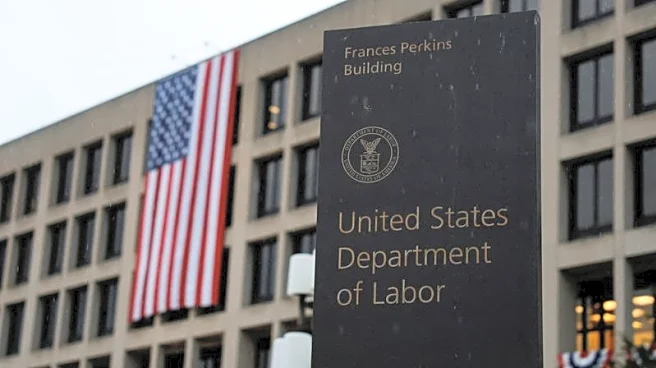Rapid Read • 8 min read
Bitcoin has approached its all-time high following a rally that also saw ether reach levels not seen since 2021. Bitcoin's price was recorded at $118,981.86, while ether was at $4,256.90, both slightly off their daily highs. This surge coincided with a rise in U.S. equity futures, as investors anticipated key inflation reports. The crypto market has been buoyed by buying during Asia's trading hours, driven by the rapid expansion of U.S. debt. Markus Thielen, CEO of 10x Research, highlighted that bitcoin's breakout in early July was linked to President Trump's signing of the Big Beautiful Bill, which included a $5 trillion debt ceiling increase. This expansion of debt is seen as a tailwind for hard assets like bitcoin and gold.
AD
The recent surge in bitcoin and ether prices reflects broader economic trends, particularly the rapid expansion of U.S. debt. This development is significant for investors and the crypto market, as it suggests a strong correlation between government fiscal policies and cryptocurrency valuations. The increase in debt is providing momentum for hard assets, which could influence investment strategies and market behavior. Additionally, the rise in crypto prices may impact related stocks and ETFs, as seen with the gains in Coinbase, Circle, and Galaxy Digital shares. This trend underscores the interconnectedness of financial markets and the potential for cryptocurrencies to serve as a hedge against economic uncertainties.
The next major resistance level for bitcoin is at $133,000, with market positioning favoring bullish trends. Investors will be closely monitoring economic indicators and government policies that could affect market dynamics. The ongoing expansion of U.S. debt may continue to drive interest in cryptocurrencies as alternative investments. Additionally, the performance of ether and related stocks suggests potential growth in the crypto sector, with treasury companies and ETFs attracting significant inflows. Stakeholders will need to assess the implications of these developments on their investment strategies and market forecasts.
The surge in cryptocurrency prices amid U.S. debt expansion raises questions about the long-term sustainability of such fiscal policies and their impact on financial markets. The reliance on debt to fuel economic growth may have ethical and economic implications, particularly concerning inflation and asset bubbles. Furthermore, the increasing integration of cryptocurrencies into mainstream financial systems highlights the evolving nature of digital assets and their role in shaping future economic landscapes.
AD
More Stories You Might Enjoy












